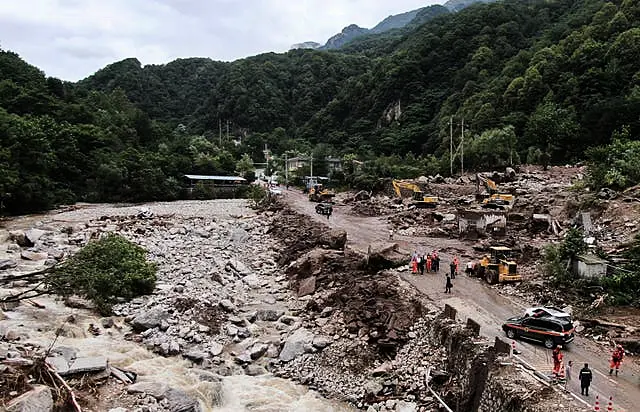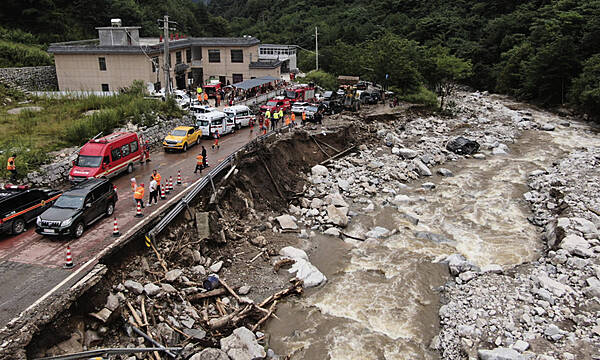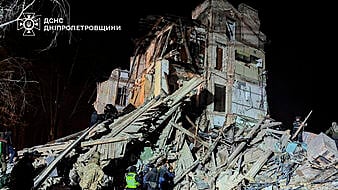Tens of thousands of people have been evacuated from their homes in China’s south-west after heavy rain caused hillsides to collapse.
Two people have been reported dead and 16 missing by state media on Saturday following a mudslide in the country’s west.
Meanwhile, a powerful storm lashed China’s north-east, leading to a breach in a river dyke and the cancellation of at least 20 trains.

Parts of China suffer heavy rain and flooding every summer, but this year has been unusually severe in some areas, while other regions struggle with drought that is damaging crops.
Rescuers were searching for survivors after a mudslide killed at least two people on Friday on the outskirts of the city of Xi’an, Xinhua reported. It said roads, bridges and power supplies were damaged.
In the south-west, some 81,000 people were evacuated from high-risk areas of Sichuan province, the China News Service reported. It said heavy rain caused hillsides to collapse and disrupted traffic, but there was no word of deaths or injuries.
The remnants of storm Khanun, downgraded from typhoon status, were forecast to dump up to one-and-a-half inches of rain per hour on the north-eastern city of Changchun and surrounding Jilin province, the Xinhua News Agency reported.
State TV showed a 500-member military construction brigade working in the dark on Friday night to close a 90-metre-long breach in a river dyke in Fuyu, a city in Jilin. They drove steel rods into the ground and piled up hundreds of sandbags to fill the gap.

More than 20 trains were cancelled in Shenyang, the biggest city in the north-east, and surrounding Liaoning province, according to state TV. Xinhua said winds of up to 55mph had been forecast in the port city of Dalian in Liaoning.
Also in the north-east, six rivers and reservoirs in Heilongjiang province were above warning levels, according to Xinhua.
Khanun pummelled parts of Japan as a typhoon before weakening over the Korean Peninsula on its way to China.
A total of 142 people nationwide were killed by flooding, landslides and mountain torrents in July, according to the Ministry of Emergency Management.

The capital, Beijing, and neighbouring Hebei province last week suffered their heaviest rainfall in at least 140 years, according to the government.
On Friday, the Hebei government raised the death toll in floods this month caused by Typhoon Doksuri to at least 29.
The official death toll from floods in Beijing rose to 33 this week. The government said it could take up to three years for power and other services to be completely restored.







